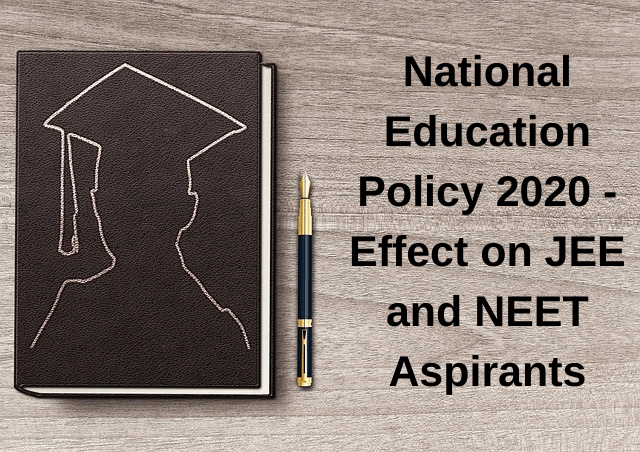
Starting by changing the name of MHRD to the Ministry of Education, the Government has approved the new National Education Policy 2020 which will restructure the school, college and higher education in coming years.
How is the new National Education Policy going to affect the JEE and NEET aspirants?
The new education policy will have minimal effect on JEE and NEET aspirants. They still need to study the core subjects – Physics, Chemistry, Mathematics and Biology. Board exams will now test concepts and application of knowledge, which is the main objective in JEE/ NEET preparation, makes it easier for aspirants to score good marks in Board exams.
What students and parents need to know about the new Education Policy?
Here are some key features of the new National Education Policy.
- Change in School structure from 10+2 to 5+3+3+4.
- A new school curriculum to include 21st century skills.
- Multi-stream option to choose subjects.
- Revamp of Board exams.
- Multilingual policy with preference to local language.
- Emphasis on digital platforms and online education services.
1. Change in School structure from 10+2 to 5+3+3+4
The existing 10+2 structure in school education will be modified with a new pedagogical and curricular restructuring of 5+3+3+4 covering ages 3-18. Currently, children in the age group of 3-6 are not covered in the 10+2 structure as Class 1 begins at age 6. In the new 5+3+3+4 structure, a strong base of Early Childhood Care and Education (ECCE) from age 3 is also included.
2. A new school curriculum to include 21st century skills
A new school curriculum will be launched to include 21st century skills like coding and vocational studies from Class 6. Curriculum content will be reduced in each subject to its core essentials, and make space for critical thinking and more holistic, inquiry-based, discovery-based, discussion-based, and analysis-based learning. The content will focus on key concepts, ideas, applications, and problem-solving. Teaching and learning will be conducted in a more interactive manner.
3. Multi-stream option to choose subjects
In the new education policy, there will be no hard separation of streams. Students will be given increased flexibility and choice of subjects to study, particularly in secondary school – including subjects in physical education, the arts and crafts, and vocational skills. All subjects to be offered at two levels of proficiency (starting with Mathematics).
4. Revamp of Board exams
Board exams will be made easier and stress free. The board exams format will be redesigned to test core competencies like concepts learning and could have objective and subjective questions in the future. Boards may over time also develop further viable models of exams, such as – annual/ semester/ modular board exams.
5. Multilingual policy with preference to local language
There will be a greater flexibility in the three-language formula and no language will be imposed on any State. Wherever possible, the medium of instruction until at least Grade 5, but preferably till Grade 8 and beyond, will be the home language/ mother tongue/ local language/ regional language.
6. Emphasis on digital platforms and online education services
The new education policy has emphasized the integration of technology in all levels of learning. The National Education Technology Forum will be created for the use of technology to enhance online learning, assessment, planning and administration.
Mystudycart is currently the best online platform for JEE and NEET preparation where a student can attend live online classes at home from the experienced online tutors.
We’re listening to students.
Have something to say about this article, or any question in mind? Share it with us on Facebook or Twitter

